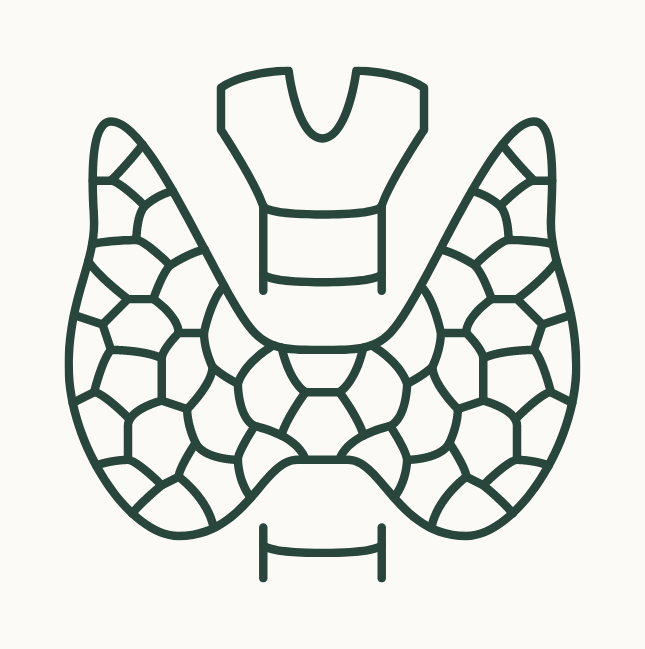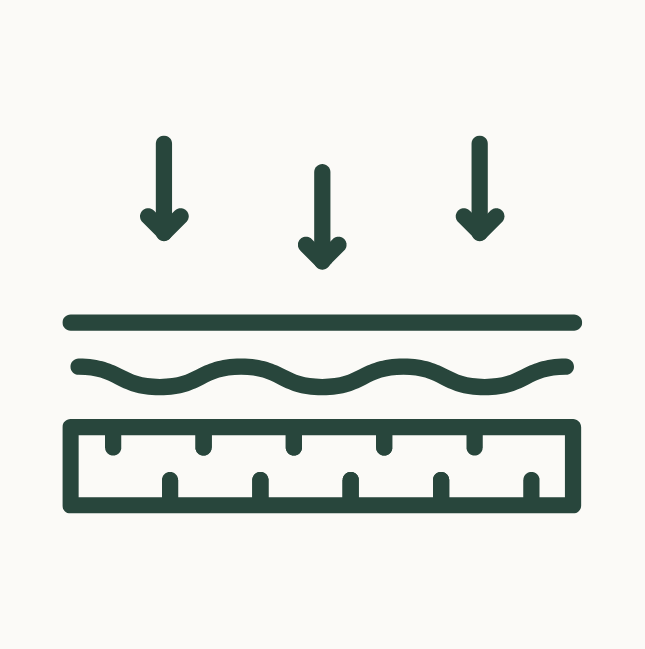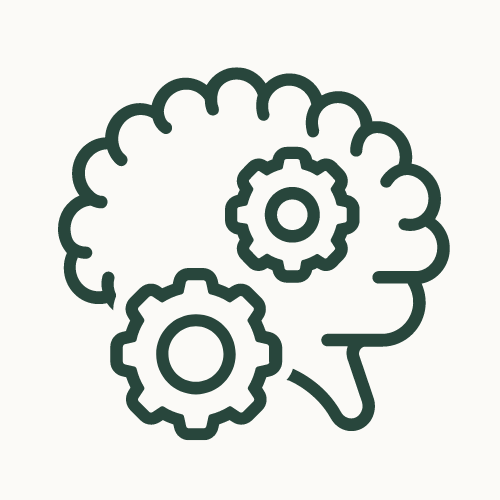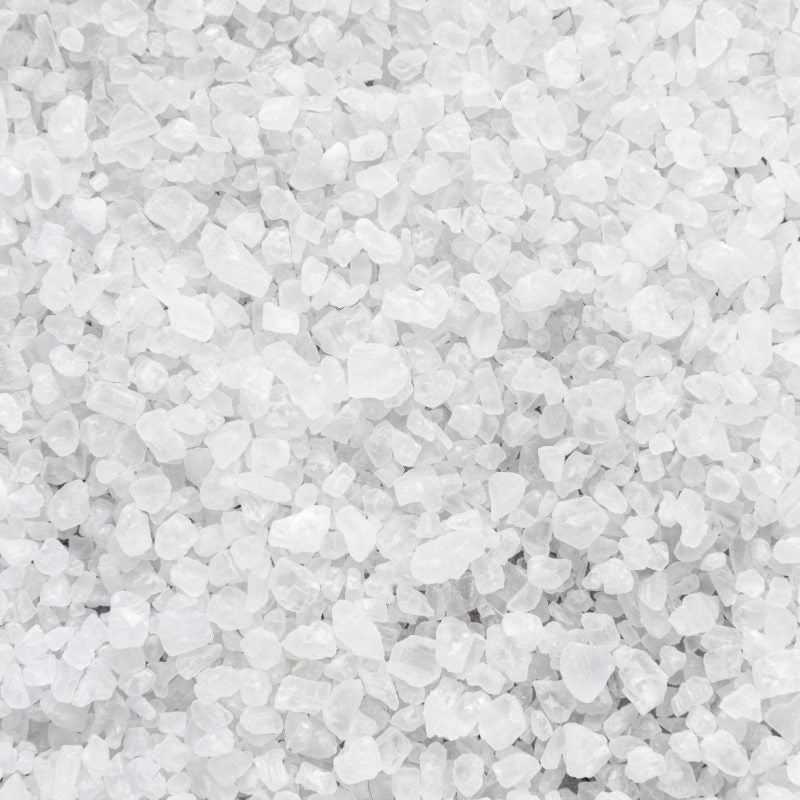
NUTRIENT PRESENTATION
iodine
Found in: sea fish, algae, dairy products.
Form: Potassium iodide
Origin: synthetic
Place of manufacture: Germany
Function: essential cofactor of thyroid hormones
Risk groups: pregnancy, lack of salt iodization.
ADVANTAGES
Iodine Facts & Knowledge
Supply in Germany according to the National Consumption Study II: without the use of iodized table salt, 96% of men and 97% of women are below the recommended iodine intake. Even with the use of iodized table salt, 28% of men and 53% of women do not reach the recommended daily intake of iodine [15].
IODINE AND ITS FUNCTIONS [9]
- Integral component of the thyroid hormones thyroxine (T4) and triiodothyronine (T3).
- T3 and T4 regulate cell division, growth and differentiation, energy metabolism and brain development.
IODINE IN PREGNANCY
- By regulating these thyroid hormones, iodine plays a crucial role in energy metabolism and in the expression of genes that affect a variety of physiological functions, including not only embryogenesis and growth, but also the development of neurological and cognitive functions [2, 9].
- An adequate iodine supply is therefore considered necessary for most pregnant and breastfeeding women (in the absence of thyroid disease) [7, 12, 15].
- Although breastfeeding women have the same requirements as pregnant women, the mean urinary iodine content is lower because iodine is excreted via breast milk [10].
ACCEPTED HEALTH CLAIMS
- contributes to normal energy metabolism
- contributes to normal cognitive function
- contributes to the normal functioning of the nervous system
- contributes to normal production of thyroid hormones and normal thyroid function
- contributes to the maintenance of normal skin
WHY IS IODINE IMPORTANT?
- Iodine plays a central role in the synthesis of the thyroid hormones triiodothyronine (T3) and thyroxine (T4) and is therefore essential for maintaining optimal thyroid function. To meet the body's needs for these hormones, the thyroid extracts iodine from the blood and incorporates it into thyroglobulin, an important protein.
- Through a degradation process, this protein is converted into T4 (thyroxine), which is then stored and released into the bloodstream when needed. In tissues such as the liver, muscles, and brain, T4 can be converted into the active form T3 by selenium-dependent enzymes known as deiodinases. T3 then interacts with thyroid hormone receptors in cell nuclei to control gene expression. Due to this mechanism, thyroid hormones play an important role in regulating various physiological processes, including growth, development, metabolism, and reproduction.
- When there is not enough iodine, the production of T4 is impaired, leading to a drop in T4 levels in the blood. In response, the pituitary gland increases the secretion of thyroid-stimulating hormone (TSH).
- Persistently high TSH levels can lead to an enlargement of the thyroid gland, also called a goiter, which reflects the body's attempt to absorb more iodine from the bloodstream to produce thyroid hormones.
PLANT-BASED DIET:
Iodine is also considered a critical nutrient in a primarily plant-based diet.
However, the iodine intake of the majority in Germany is below the recommended daily intake. However, studies also show that vegans are even worse off than vegetarians, as fish and dairy products are also not possible sources of iodine [1].
biomarkers
Note: Iodine concentration in urine samples collected in the morning has been shown to adequately assess population iodine status; 24-hour sampling is more difficult to achieve and not necessary. At the individual level, 10 repeated spot or 24-hour urine samples are required [11]. Pooled urine: Pooled urine is collected over 24 hours, starting with the second morning urine. After that, collect all urine for 24 hours, including overnight, in the urine collection container, including the morning void (first morning urine) [18].
<99 µg/l insufficient
100-199 µg/l adequate
< 150 µg/l insufficient
150- 249 µg/l adequate
< 100 µg/l insufficient
≤ 100µg/l adequate
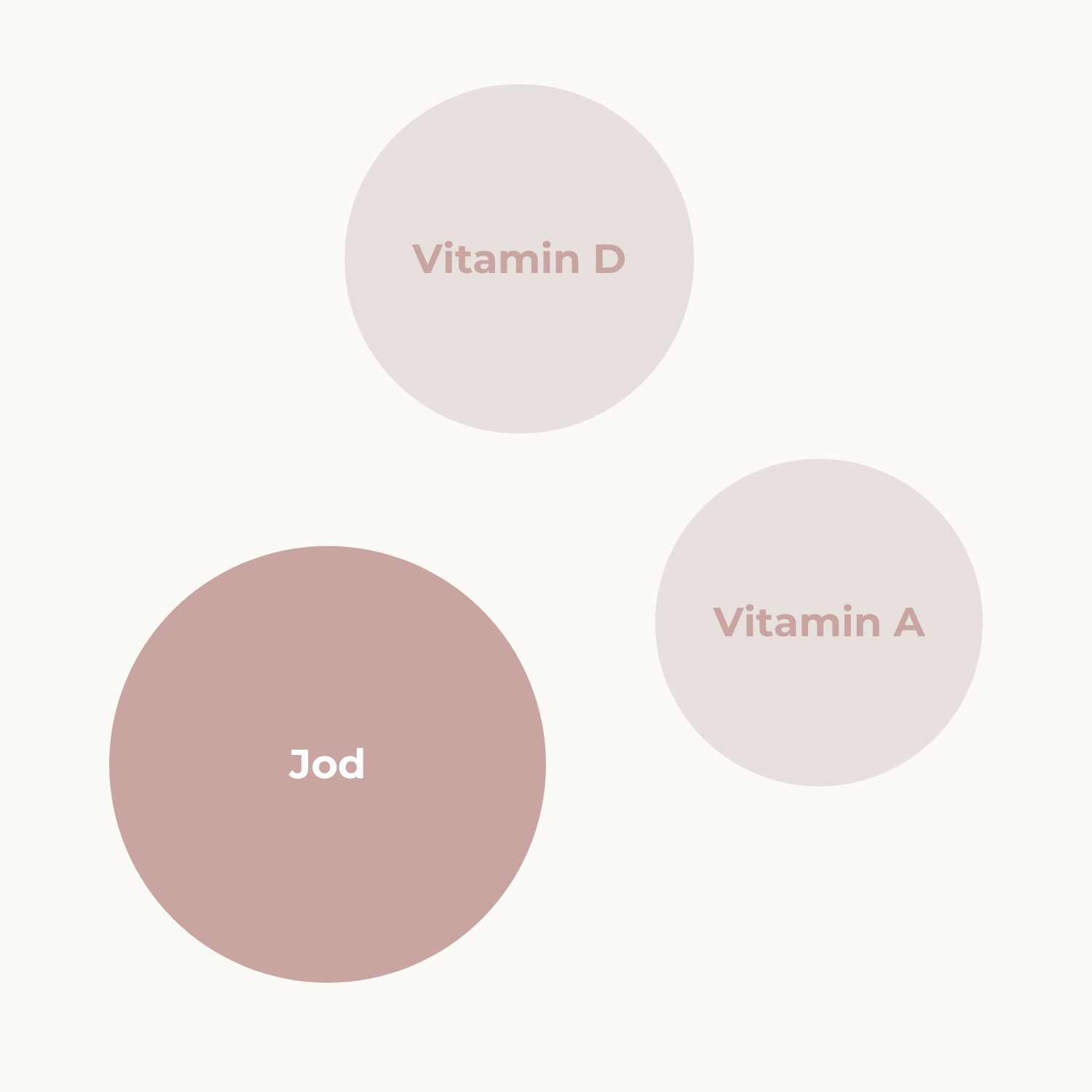
COLLEAGUES
Who does Jod work with?
As an essential cofactor for T3 and T4, iodine acts via the thyroid hormones together with vitamin A and vitamin D in gene expression.
FOR FURTHER READING
Evidence-based formulations
We use nutrients that are backed by a comprehensive body of research that is growing daily.

